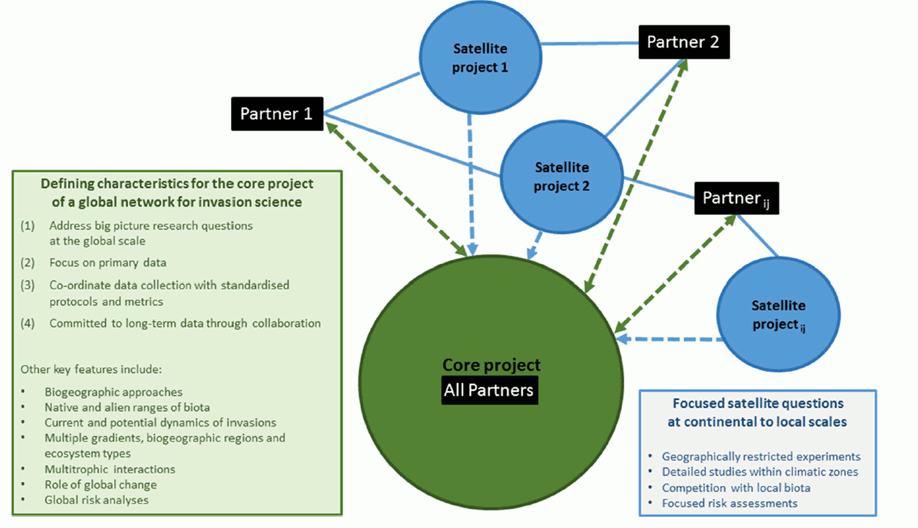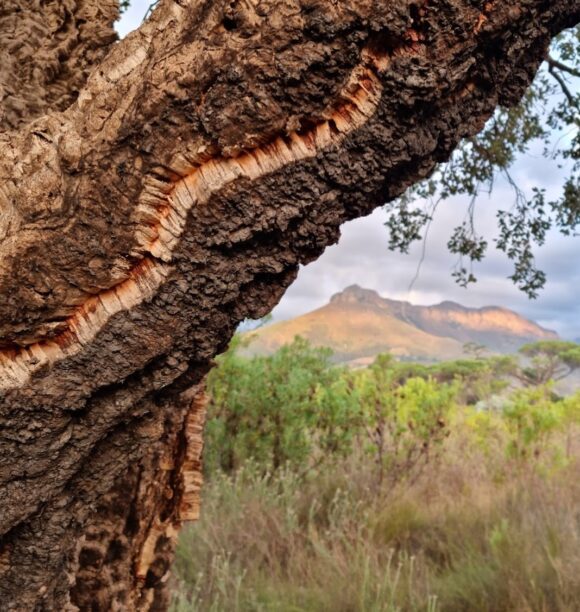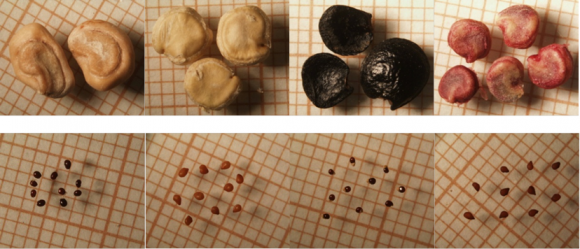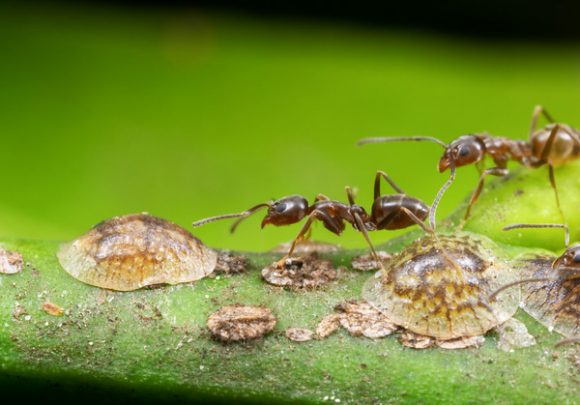An international team, including several C·I·B researchers, recently developed and published a framework for the establishment of global networks between researchers, policymakers, and practitioners in invasion science.
The paper, led by Jasmin Packer (University of Adelaide, Australia) and co-authored by Laura Meyerson (C·I·B Science Advisor), Dave Richardson (C·I·B Director), Petr Pyšek (C·I·B Research Associate) and Susan Canavan (C·I·B PhD student), was the product of an international workshop hosted by the PhragNet group and the University of Sassari in Italy, April 2016.
One way to move towards studies that embrace a broader geographical context is through global networks. Global networks can provide better infrastructure for studies attempting to answer big-picture questions, especially those that address biogeographic questions. For example, trying to understand the influence of climate-change, post-invasion adaption and evolution, environmentally influenced genetic traits, or species interactions associated with invasions, would all benefit greatly from this approach.
In their paper, which was published in Biological Invasions, the authors suggest that a ‘global network’ should cover gradients (latitudinal and longitudinal from natural to human-dominated ecosystems) with nodes (partners and sites) spanning biogeographic zones over both hemispheres, and include at least three continents.
The paper also provides practical discussions surrounding the collection of data, coordination between researchers, development of protocols, and time-frames for long-term data collection.
“The formation of global networks offers a valuable tool to help study and understand biological invasions, which would otherwise be a challenge for research groups who often work in isolation, said Susan Canavan. “Global networks provide a collective capacity to better understand, predict and manage facets of biological invasions across multiple localities and geographic scales.”
PhragNet group is a network of scientists studying the common reed (Phragmites australis).
Read the paper in Biological Invasions
For more information, contact Susan Canavan at scanavan@sun.ac.za




